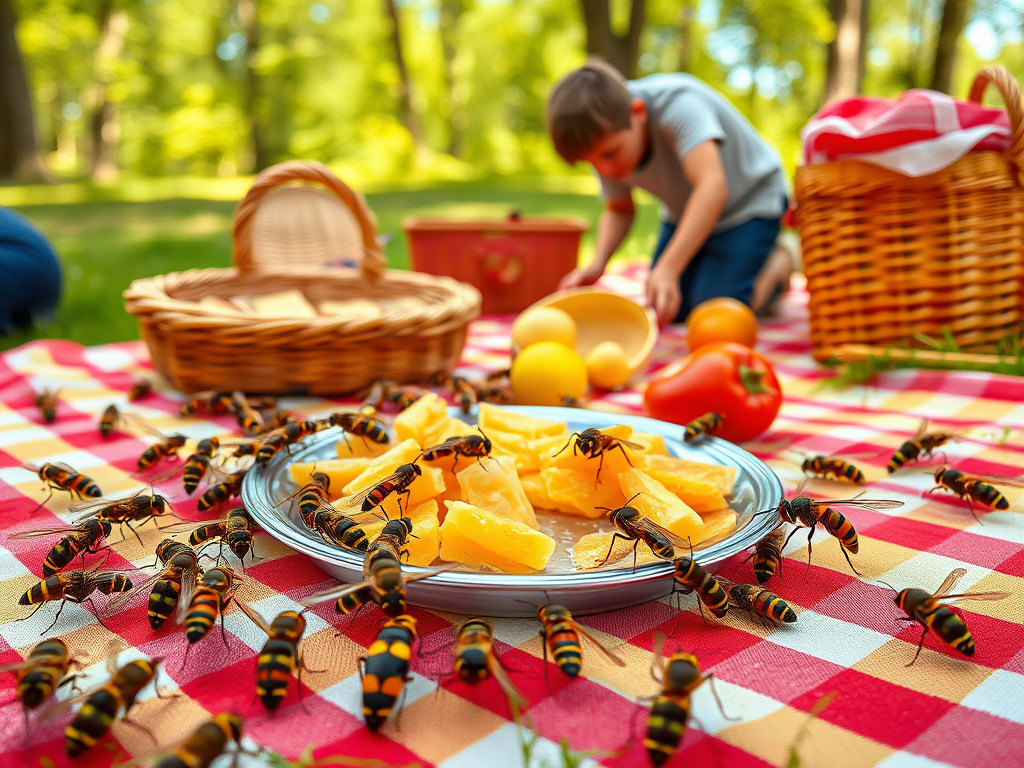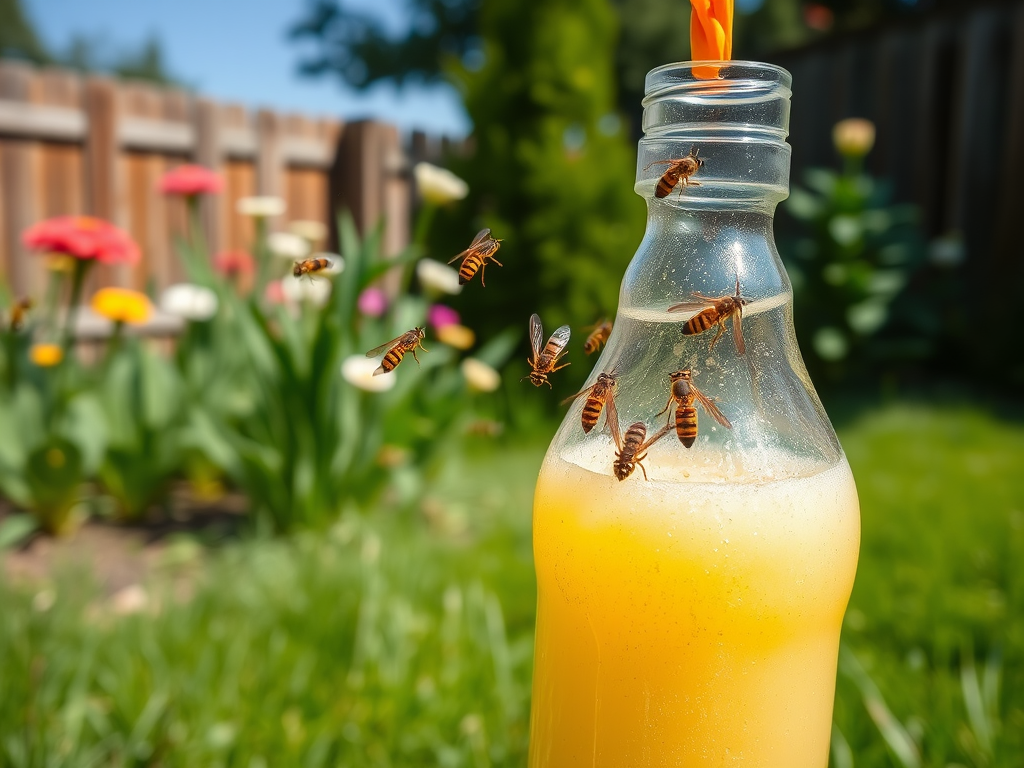Wasps can turn a peaceful day outdoors into a frantic battle for survival. These insect invaders, while often misunderstood, can pose significant threats to both comfort and safety, especially for those who are allergic to their stings. Understanding how to manage these pests naturally is crucial for anyone looking to enjoy their outdoor spaces without the looming threat of a sudden wasp encounter. The beauty of nature should not be marred by the fear of an unwelcome sting. Thankfully, natural wasp control methods can be incredibly effective and environmentally friendly. With the right knowledge and tools at your disposal, you can reclaim your outdoor areas without resorting to harmful chemicals.
Instead of reaching for chemical pesticides that may harm more than just the wasps, consider embracing nature’s own solutions. Eco-friendly practices not only help in keeping your home safe but also promote biodiversity by protecting beneficial insects. In this comprehensive guide, you will discover various strategies for dealing with wasps effectively. We’ll address natural repellents, DIY traps, and smart preventive measures you can take to mitigate wasp problems. Knowledge is power, so let’s dive deep into the world of natural wasp management!
Understanding the Wasp Problem

Understanding wasps begins with recognizing their behaviors and habitats. These insects are often social, living in colonies and building nests in sheltered locations. While some species are more aggressive than others, all wasps can be unsettling during outdoor activities. By learning where these pests thrive, you can take proactive steps to avoid problems before they arise. Prevention is always more attractive than remediation, especially when it comes to aggressive pests.
Why Choose Natural Methods?

There are many reasons individuals prefer natural methods for managing wasp populations. Firstly, natural remedies tend to be safer for children and pets and generally less harmful to beneficial insects. Utilizing non-toxic solutions aligns with a growing desire for eco-friendliness in modern society. Along with being safe, methods like homemade traps and sprays can be quite effective when applied consistently. As you move forward, consider how natural solutions might be a healthier choice for everyone involved.
Identifying Wasp Species
To effectively deal with wasps, it’s essential to identify which species you are dealing with. Different species may require tailored approaches for effective management, hence knowing common wasp species can greatly benefit your efforts in controlling them. Let’s explore a few common types that may invade your space:
- Yellowjackets: Typically aggressive and often found near food sources, they tend to swarm and are often attracted to garbage.
- Paper Wasps: Recognizable by their unique umbrella-shaped nests, these wasps are generally less aggressive but can still sting if provoked.
- Hornets: Larger and more aggressive than their counterparts, hornets can be dangerous if threatened, making their management essential.
Natural Repellents
Certain natural ingredients can work wonders in effectively deterring wasps. For instance, essential oils have been found to repel many pests, including wasps. By incorporating them into your pest management routine, you can create an unwelcoming environment for these intruders without the use of harsh chemicals. Let’s look at some effective natural repellents:
- Peppermint Oil: A powerful repellent when mixed with water and sprayed around your home.
- Vinegar and Water Solutions: An effective homemade pesticide that suffocates wasps upon application.
- Other Essential Oils: Clove, geranium, and lemongrass also work well in combination to deter these insects.
DIY Traps
Creating homemade traps can drastically reduce wasp populations around your property. Using common household items, you can fashion devices that lure and capture these pests effectively. One such remedy involves simple materials that make the process both budget-friendly and easy.
| Trap Type | Materials Needed | Instructions |
|---|---|---|
| Plastic Bottle Trap | 2-liter bottle, sugar water/fruit juice | Cut bottle in half, fill bottom with mixture, invert top. |
| Vinegar Trap | Vinegar, bowl, plastic wrap | Fill bowl with vinegar, cover with wrap, poke holes. |
| Fruit Juice Trap | Bowl, fruit juice, soap | Fill bowl with juice and a dash of soap. |
Preventive Measures
Effective and long-term control of wasps is best achieved through preventive measures. By minimizing attraction, you can create an environment that is less inviting for these pests. Here are some proactive strategies to keep wasps at bay:
- Food Management: Keep outdoor foods sealed and covered, and tidy up spills. Wasps are particularly drawn to sweet and protein-rich foods.
- Nest Removal: Regularly inspect your property for nests. Early removal, ideally in spring, can prevent population growth.
- Hiding Spots: Block potential nesting spots by sealing gaps in eaves, patios, or sheds where they can build nests.
Conclusion
In summation, natural methods of dealing with wasps can be incredibly effective while maintaining a respectful approach towards the environment. By understanding wasp behavior, utilizing natural repellents, DIY traps, and implementing relevant preventive measures, you stand a better chance of successfully managing wasp populations. A balanced approach that favors safe, non-toxic alternatives allows you to enjoy your outdoor spaces without unnecessary fear. Take proactive steps today to ensure that nature remains enjoyed, and the unwelcome buzz of wasps is heard less frequently.
Frequently Asked Questions
- How do I know if I have a wasp problem? You may notice increased wasp activity around food sources or spot nests in sheltered areas.
- Are natural methods equally effective as chemical pesticides? Natural methods can be just as effective; they may require more diligence but are safer for the environment.
- What should I do if I get stung by a wasp? Clean the area, apply ice to reduce swelling, or take antihistamines if needed. Seek medical help for severe reactions.
- Can wasps be beneficial? Yes! Wasps can help control pest populations and contribute to pollination, making them a vital part of the ecosystem.



